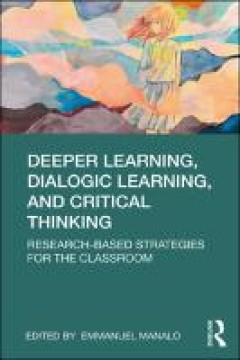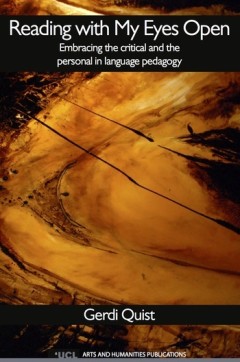Filter by
Paradoxes of interculturality: a toolbox of out-of-the-box ideas for intercul…
Offering a unique reading experience, this book examines the epistemologies of interculturality and explores potential routes to review and revisit the notion anew. Grounded in different sociocultural, economic and political perspectives around the world, interculturality in education and research bears a paradoxical attribute of 'contradictions' and 'inconsistencies', making it a polysemous a…
- Edition
- -
- ISBN/ISSN
- 9781003371052
- Collation
- vi, 139 p.
- Series Title
- -
- Call Number
- 370.117 FRE p

Primary and secondary education during Covid-19 : disruptions to educational …
This open access edited volume is a comparative effort to discern the short-term educational impact of the covid-19 pandemic on students, teachers and systems in Brazil, Chile, Finland, Japan, Mexico, Norway, Portugal, Russia, Singapore, Spain, South Africa, the United Kingdom and the United States. One of the first academic comparative studies of the educational impact of the pandemic, the bo…
- Edition
- -
- ISBN/ISSN
- 9783030815004
- Collation
- vi, 475p. : ill.
- Series Title
- -
- Call Number
- 371.35 PRI p

Deeper learning, dialogic learning, and critical thinking : research-based st…
Deeper learning, dialogic learning, and critical thinking are essential capabilities in the 21st-century environments we now operate. Apart from being important in themselves, they are also crucial in enabling the acquisition of many other 21st-century skills/capabilities such as problem solving, collaborative learning, innovation, information and media literacy, and so on. However, the majorit…
- Edition
- -
- ISBN/ISSN
- 9780429323058
- Collation
- XXII, 363 p.
- Series Title
- -
- Call Number
- 370.1523 DEP d

Reading With My Eyes Open: Embracing the critical and the personal in languag…
Untangling the various approaches to language teaching and their history, Gerdi Quist maps recent thinking in language studies at university. Using an interdisciplinary theoretical framework, drawn from educational philosophy, cultural studies, intercultural studies and language pedagogy, the author discusses the many tensions and currents in contemporary language teaching. The author puts forw…
- Edition
- -
- ISBN/ISSN
- 9781909188228
- Collation
- ix, 198p. : ill.
- Series Title
- -
- Call Number
- 418.00711 QUI r
 Computer Science, Information & General Works
Computer Science, Information & General Works  Philosophy & Psychology
Philosophy & Psychology  Religion
Religion  Social Sciences
Social Sciences  Language
Language  Pure Science
Pure Science  Applied Sciences
Applied Sciences  Art & Recreation
Art & Recreation  Literature
Literature  History & Geography
History & Geography